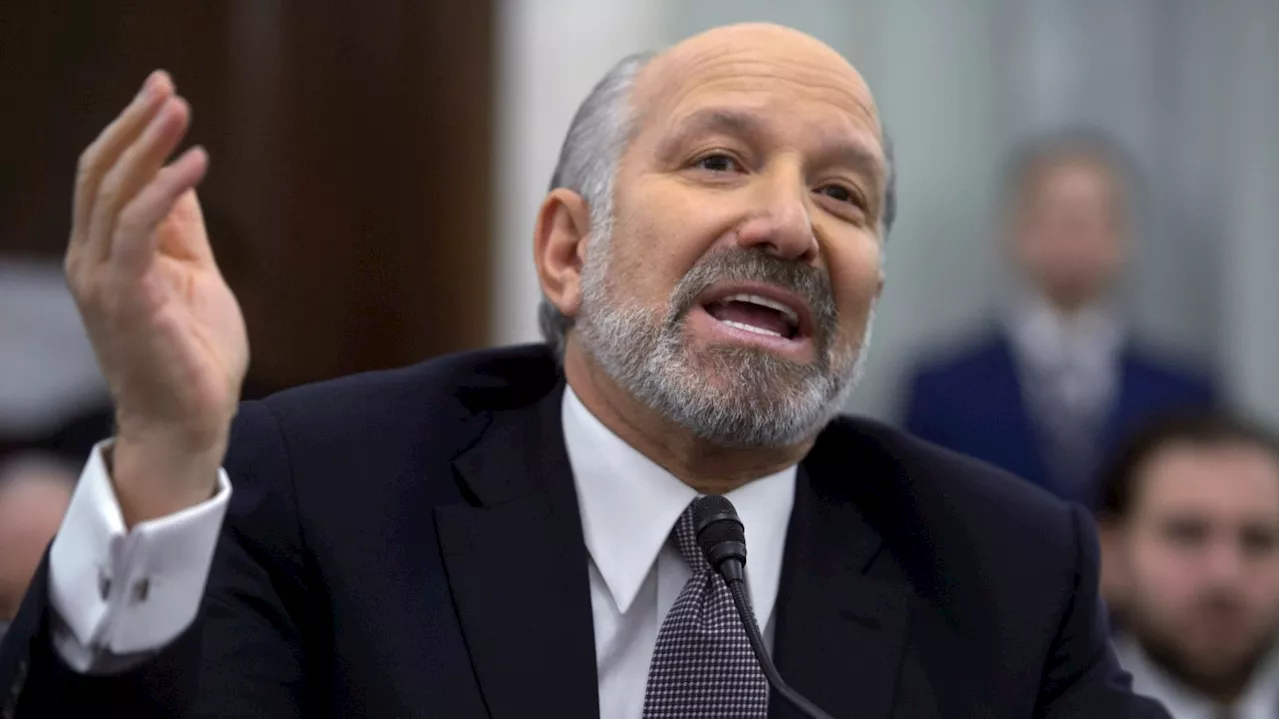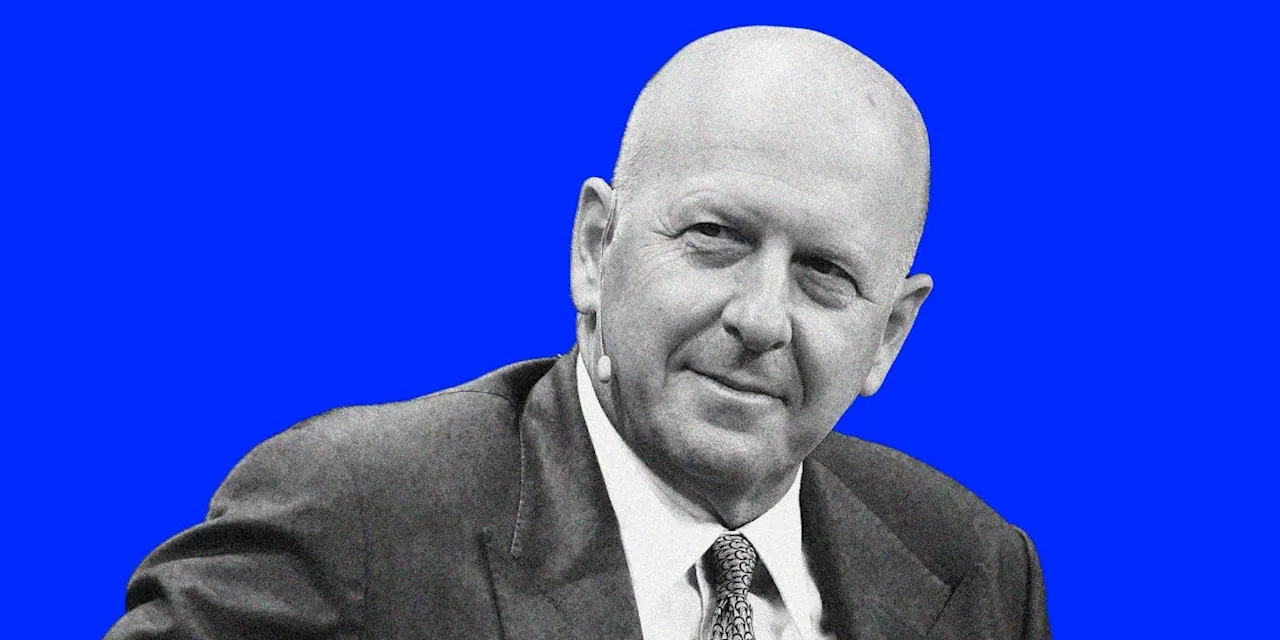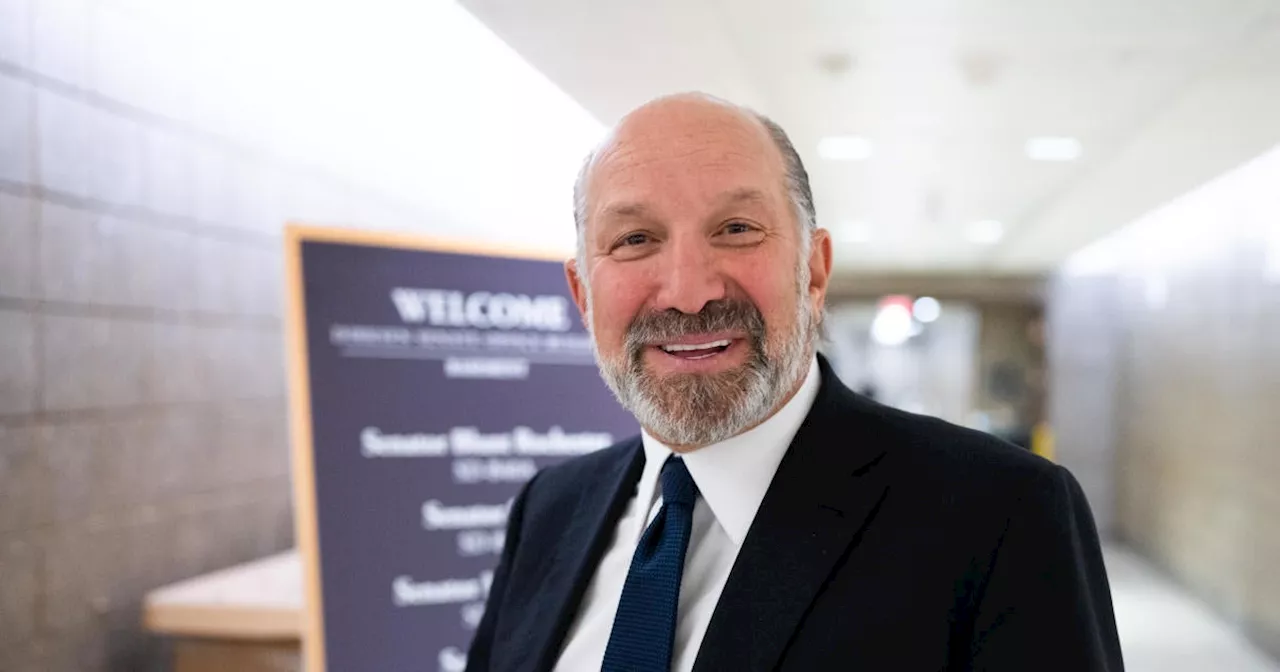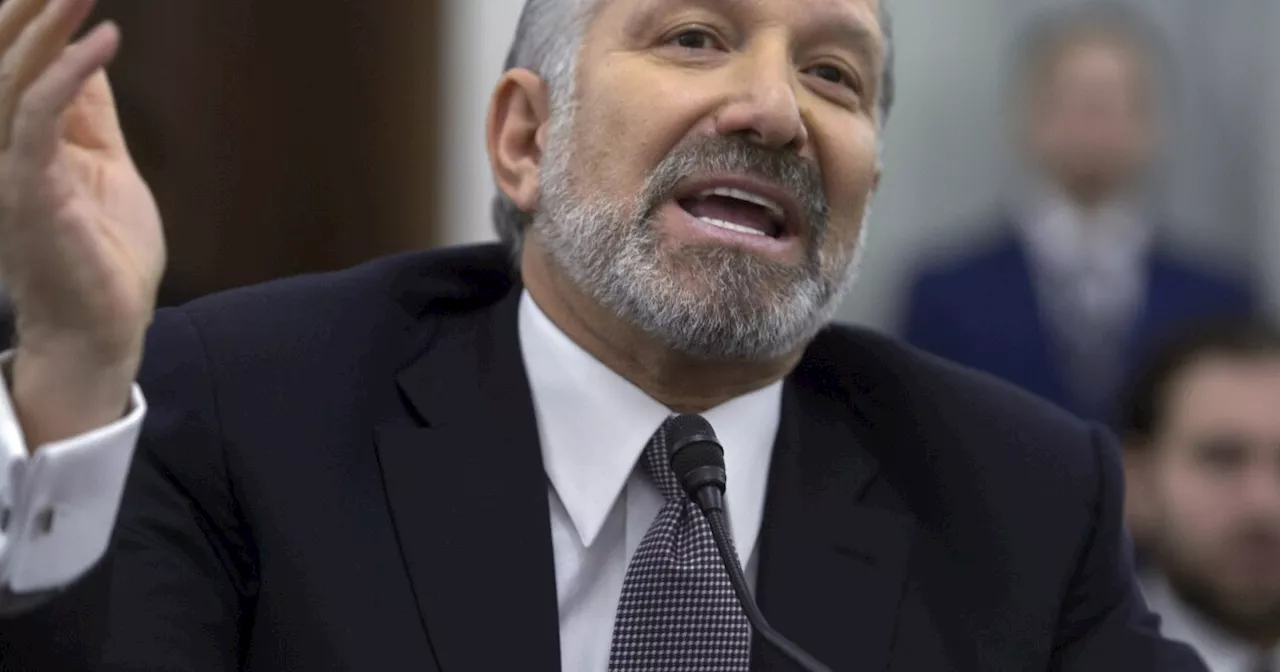Billionaire Wall Street CEO Howard Lutnick, nominated by President Trump to lead the Commerce Department, faced tough questioning from the Senate Commerce Committee during his confirmation hearing. Lawmakers pressed Lutnick on his stance on tariffs, their impact on US businesses and consumers, and his plans for addressing key issues like broadband access and reviving domestic industries.
Howard Lutnick , a billionaire Wall Street CEO chosen by President Trump to lead the Commerce Department , faced the Senate Commerce Committee for his confirmation hearing. Lutnick, a significant Republican donor in recent years after previously supporting politicians from both parties, would oversee a department responsible for enforcing tariffs on foreign imports and granting exemptions from those import taxes. The Commerce Secretary also negotiates trade deals, promotes U.S.
businesses and exports, and heads agencies like the National Oceanic and Atmospheric Administration (NOAA) with the National Weather Service, the Census Bureau, and the National Telecommunications and Information Administration (NTIA), which focuses on wireless airwaves and broadband access. \During the hearing, Lutnick addressed key issues such as the impact of tariffs on U.S. manufacturers and farmers, federal funding for broadband access, China's advancements in artificial intelligence, and reviving American domestic mining, logging, and semiconductor production. He emphasized the strengths of the United States, boasting of its innovative minds, abundant land, and exceptional farmers, fishers, and ranchers who produce superior beef for 'much more beautiful' steaks. However, Lutnick repeatedly argued that the world mistreats the U.S., citing both China and allied nations in Europe, Canada, Japan, and Korea as taking advantage of American goodwill. \'My way of thinking ... is country by country, macro, let America make it more fair,' he stated. 'We are treated horribly by the global trading environment... And we can use tariffs to create reciprocity, fairness, and respect.' Lutnick suggested that Mexico and Canada could avoid broad tariffs if they closed their borders to stem the flow of fentanyl, adding that President Trump has instructed a federal study on the 'tariff model,' expected to conclude in the spring. Several senators questioned Lutnick about rising costs for both U.S. companies and consumers, particularly if other countries retaliate with their own tariffs on American exports. Lutnick dismissed concerns about inflation, stating, 'A particular product's price maybe go up. But all of them... It is just a nonsense that tariffs cause inflation,' and advocated for a combination of export controls on technology with stricter tariffs. He also proposed that the government's use of artificial intelligence tools would eventually 'rid the world of criminals using blockchain for illicit activity.' Lutnick expressed his commitment to reviving America's semiconductor manufacturing industry, currently dominated by Taiwan, South Korea, and China. He viewed the existing government program as a 'good down payment' that still required review for optimal implementation.
Howard Lutnick Commerce Department Tariffs Trade Policy Artificial Intelligence Semiconductor Manufacturing China Federal Funding Broadband Access
United States Latest News, United States Headlines
Similar News:You can also read news stories similar to this one that we have collected from other news sources.
 Billionaire Wall Street CEO Lutnick Grilled on Tariffs, China and Trump Loyalty at Commerce Confirmation HearingHoward Lutnick, a billionaire Wall Street CEO nominated by President Trump to lead the Commerce Department, faced a rigorous confirmation hearing before the Senate Commerce Committee. Senators questioned him on a range of issues, including tariffs, China's AI advancements, broadband access, his commitment to President Trump, and plans to revive American mining and semiconductor production. Lutnick defended his stance on tariffs, arguing they were necessary to create fairness in global trade. He also expressed his commitment to reviving domestic industries and ensuring efficient use of federal funds.
Billionaire Wall Street CEO Lutnick Grilled on Tariffs, China and Trump Loyalty at Commerce Confirmation HearingHoward Lutnick, a billionaire Wall Street CEO nominated by President Trump to lead the Commerce Department, faced a rigorous confirmation hearing before the Senate Commerce Committee. Senators questioned him on a range of issues, including tariffs, China's AI advancements, broadband access, his commitment to President Trump, and plans to revive American mining and semiconductor production. Lutnick defended his stance on tariffs, arguing they were necessary to create fairness in global trade. He also expressed his commitment to reviving domestic industries and ensuring efficient use of federal funds.
Read more »
 Goldman Sachs CEO Unveils How AI is Transforming Wall StreetIn a revealing address at Cisco's AI Summit, Goldman Sachs CEO David Solomon detailed the profound impact of artificial intelligence on the financial industry, particularly within his firm. Solomon highlighted how AI is streamlining processes, enhancing efficiency, and empowering bankers and analysts with powerful new tools.
Goldman Sachs CEO Unveils How AI is Transforming Wall StreetIn a revealing address at Cisco's AI Summit, Goldman Sachs CEO David Solomon detailed the profound impact of artificial intelligence on the financial industry, particularly within his firm. Solomon highlighted how AI is streamlining processes, enhancing efficiency, and empowering bankers and analysts with powerful new tools.
Read more »
 Anthropic CEO Dario Amodei Discusses the Future of AI in The Wall Street Journal InterviewThe Wall Street Journal interviewed Anthropic CEO Dario Amodei at Davos, Switzerland, providing a unique perspective on the future of AI. Amodei discussed Anthropic's upcoming plans for its Claude chatbot, the potential for AI to surpass human intelligence, the impact of AI on the workplace, and the need for safe and regulated AI development. He also touched on Anthropic's partnerships with big tech firms and the competition with China.
Anthropic CEO Dario Amodei Discusses the Future of AI in The Wall Street Journal InterviewThe Wall Street Journal interviewed Anthropic CEO Dario Amodei at Davos, Switzerland, providing a unique perspective on the future of AI. Amodei discussed Anthropic's upcoming plans for its Claude chatbot, the potential for AI to surpass human intelligence, the impact of AI on the workplace, and the need for safe and regulated AI development. He also touched on Anthropic's partnerships with big tech firms and the competition with China.
Read more »
 Trump Nomination of Crypto Banker Howard Lutnick Another 'Win for the Billionaire Class'Julia Conley is a staff writer for Common Dreams.
Trump Nomination of Crypto Banker Howard Lutnick Another 'Win for the Billionaire Class'Julia Conley is a staff writer for Common Dreams.
Read more »
 Billionaire Financier Lutnick to Lead Commerce DepartmentHoward Lutnick, a billionaire financial executive, has been nominated by President Trump to head the Commerce Department. Lutnick has agreed to divest his holdings in several business interests, including stepping down from his long-held positions at Cantor Fitzgerald, BGC Group, and Newmark Group. As Commerce Secretary, Lutnick will face the challenge of avoiding conflicts of interest while promoting U.S. corporate interests, particularly in the areas of trade and economic policy.
Billionaire Financier Lutnick to Lead Commerce DepartmentHoward Lutnick, a billionaire financial executive, has been nominated by President Trump to head the Commerce Department. Lutnick has agreed to divest his holdings in several business interests, including stepping down from his long-held positions at Cantor Fitzgerald, BGC Group, and Newmark Group. As Commerce Secretary, Lutnick will face the challenge of avoiding conflicts of interest while promoting U.S. corporate interests, particularly in the areas of trade and economic policy.
Read more »
 Lutnick's Business Empires Raise Conflicts of Interest Concerns for Commerce Secretary NomineeNew analyses reveal potential unavoidable conflicts of interest for Howard Lutnick, nominated as U.S. Commerce Secretary, due to his extensive investments in cryptocurrency, Nvidia, and the satellite industry. Despite claims of divestment, concerns remain about Lutnick's deep ties to his financial services firm, Cantor Fitzgerald, and its financial entanglement with these sectors.
Lutnick's Business Empires Raise Conflicts of Interest Concerns for Commerce Secretary NomineeNew analyses reveal potential unavoidable conflicts of interest for Howard Lutnick, nominated as U.S. Commerce Secretary, due to his extensive investments in cryptocurrency, Nvidia, and the satellite industry. Despite claims of divestment, concerns remain about Lutnick's deep ties to his financial services firm, Cantor Fitzgerald, and its financial entanglement with these sectors.
Read more »
